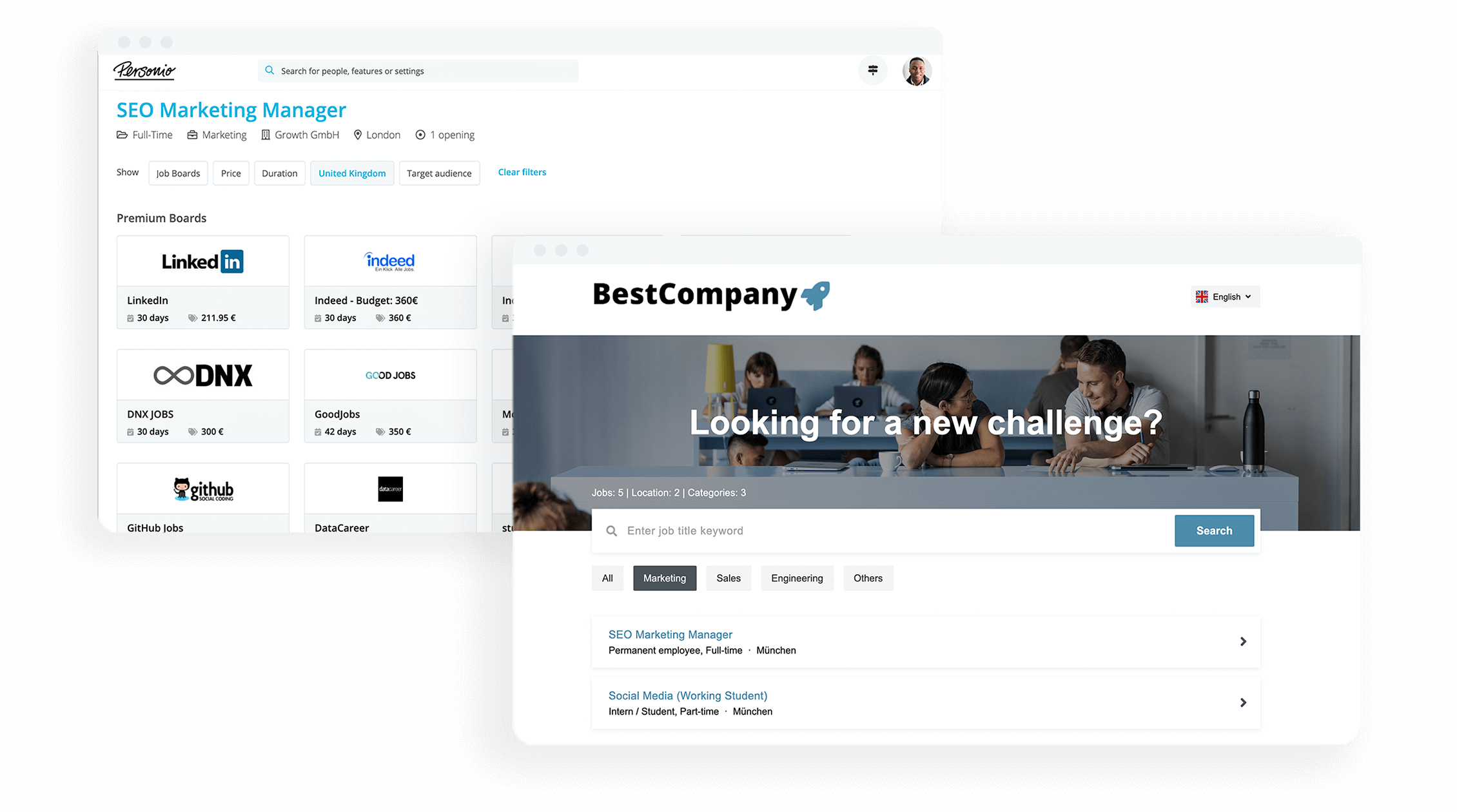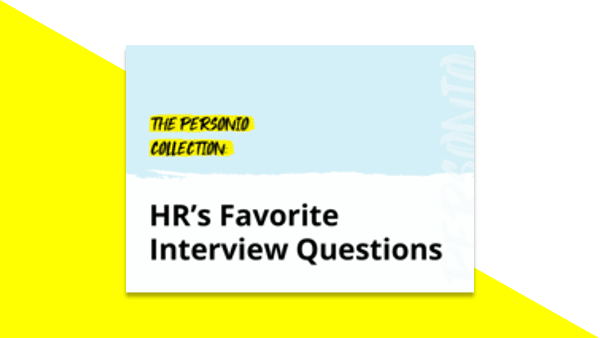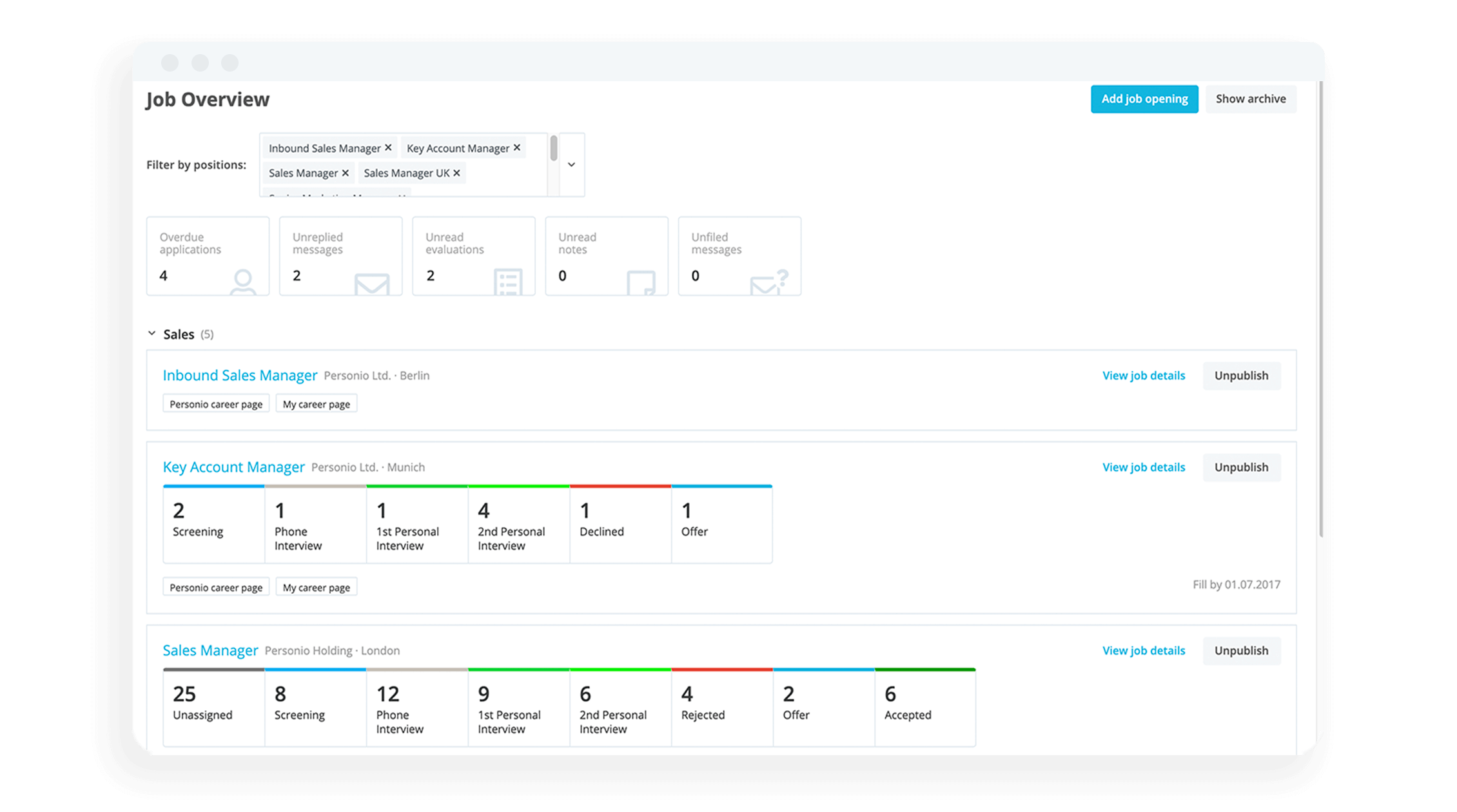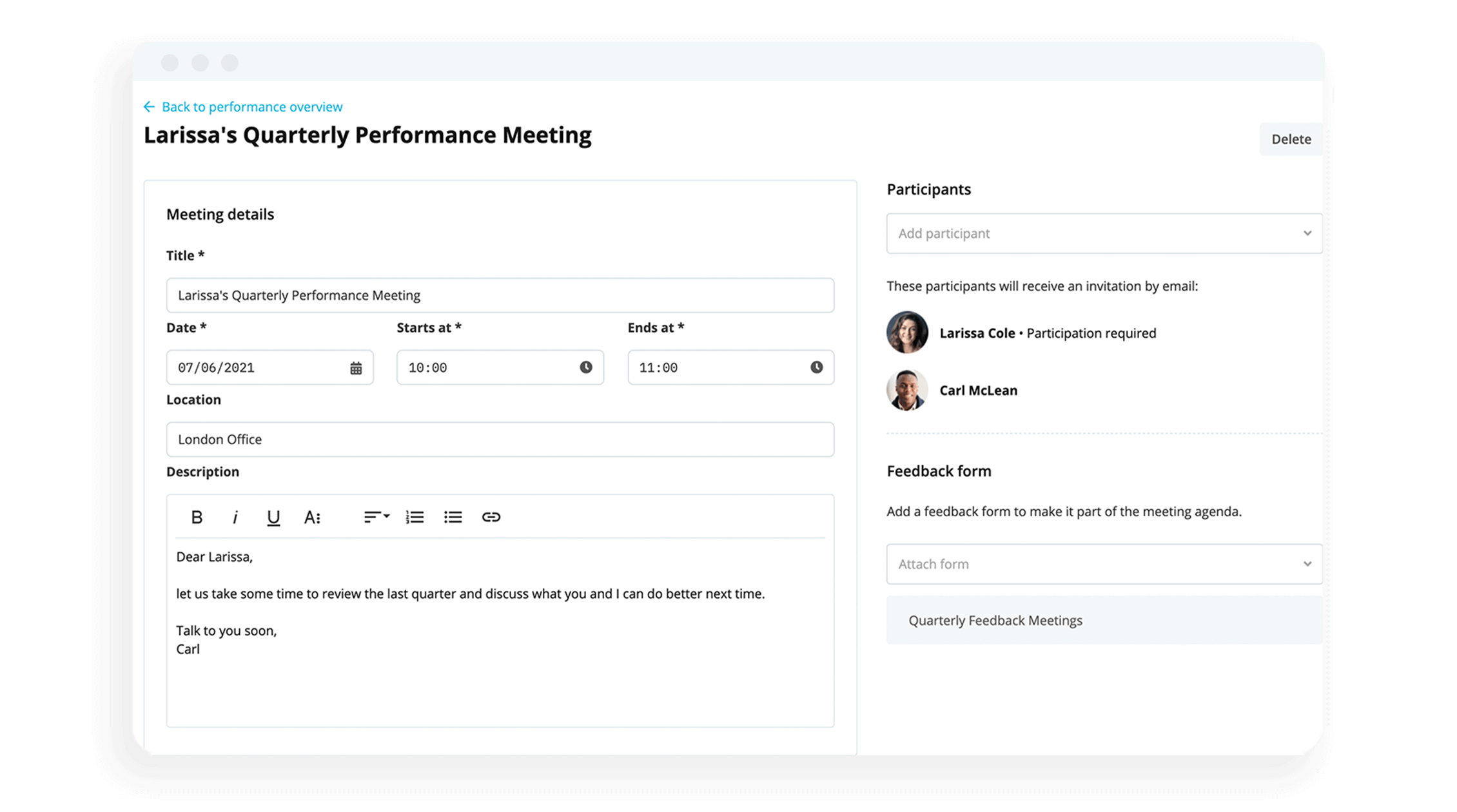Latest Blog Posts
How Do You Conduct A Great Reference Check?

In today’s workplaces, a reference check can go one of two ways: You’ll either confirm that the candidate has all of the fantastic skills and experience they say they do, or you’ll uncover something disappointing.
To cut through any lies and exaggerations — and find honest, qualified candidates — you need to include reference checks in your applicant screening process. Here’s our guide on how to do it quickly, easily, and painlessly.
Recruitment just got easier with Personio. Find out how.Contents
Reference Checks: What Do The Numbers Tell Us?
You may not want to believe that someone would lie on their CV, but a staggering 92.5% of surveyed UK workers have. Most workers lied about the duration of their past employment, employment gaps, or exaggerated their previous salary.
"But I can spot a lie from a mile away!"
You may think so, but the truth is, 71.6% of employees got the job they applied for as a result of their lie — which means they got away with it.
The question is, how well did they really do in that role?
Did their lie ever trip them up?
Did it eventually lead to their termination, resulting in the employer going through the hiring process all over again?
What Is A Reference Check?
A reference check is when a hiring manager, employer, or recruiter contacts a job candidate’s former workplace to get more information on the candidate’s performance and skills. The purpose of a reference check is to ensure the candidate has the qualifications needed for the role the employer is trying to fill.
Let’s take one step back and ensure that your job descriptions are making the grade, too.
What Should Happen During A Reference Check?
During a reference check, the hiring manager will confirm the information the candidate included in their CV. They may also dig a bit deeper into the employer’s experience with the candidate by asking about the candidate’s:
Punctuality | The baseline behavior for an employee: If they showed up to work as expected. |
|---|---|
Contributions | The positive things that an employee did during their tenure at their previous company. |
Key Skills | Key areas where an employee excelled (or said they excelled). |
Attitudes | The way a previous employee approached their work and their relationships with colleagues. |
Other Issues | Anything else pertinent to the role that a new employer may want to know about. |
What Step Is A Reference Check In The Application Process?
Conducting a reference check is often the final step a hiring manager or recruiter takes before presenting a job offer to a candidate. They may also conduct a background check and an employment history check, which we’ll cover later on.
Who Can Applicants Use As A Reference?
Usually, the hiring manager will conduct a reference check with the candidate’s former manager or direct supervisor. But that’s not always the case.
For example, if the candidate is vying for a supervisor role, the hiring manager may get better insight into how good of a leader they are by speaking to the employees they previously managed.
Attract More Qualified Candidates, More Quickly

Sourcing talent with Personio has never been simpler, with access to 500+ job portals to spread your job advert far and wide. Click the button below to see how it looks in action.
Source Top Talent With PersonioReference Check vs Background Check: What’s The Difference?
Reference checks and background checks go hand-in-hand in the hiring process. Whereas a reference check is an interview-style exploration of a candidate’s past work performance, a background check is more of a fact-finding mission.
Depending on the employee, employer, and job qualifications, a background check may include:
Identity verification
Employment history check (job title, workplace, duration, salary)
UK right to work check
Education verification
Association memberships and professional licenses verification
Criminal record check
Driver Vehicle and Licensing Agency (DVLA) check
Credit check
Social media screening
Drug and alcohol testing
UK sanctions check
Medical screening (Note: Under the Equality Act of 2010, employers cannot ask health questions before they offer employment, as to prevent discrimination.)
Should You Get An Employment History Check, Too?
If you need more insight into a candidate’s job experience, you may also want to run an employment history check on them. As the name suggests, this check details an employee’s complete and comprehensive work experience.A basic employment history check will tell you:
The names and locations of their previous employers
Their job titles
Their salaries
The duration of their employment at each workplace
There are several services that offer in-depth employment history checks for employers who want more information on a candidate. In addition to the aforementioned details, a more thorough investigation can tell you:
Why the employee left a company
An analysis into an employment gap (Was the candidate unemployed for a long period of time? If so, why?)
Details of self-employment or contract roles
Free Download: HR’s Favorite Interview Questions

What questions work best in a first, second, or third interview? We have compiled some of HR’s favourite interview questions for you to both enjoy and use for yourself. Download for free today.
Download Them NowWhat Is The Best Way To Conduct A Reference Check?
First and foremost, get consent from the candidate to contact their previous employers. Ideally, you’d receive a reference from the candidate’s most recent employer — but that’s not always possible.
If the candidate is currently employed, their employer may not know they’re planning on leaving the company. You don’t want to put the candidate in an uncomfortable position at their current workplace, even if they’ll be leaving soon enough.
In this case, you’ll want to contact a different former employer, educator, or reference.
Get input from those involved in the interviewing and hiring process to see what questions or concerns they have about the candidate. Make sure everyone is comfortable with and confident in the new hire to make the transition as easy as possible.
Establish your list of questions before you begin your reference checks. Tailor them to the candidate, the position, and any questions that arose during the interview process. Ask specific, open-ended questions that don’t leave room for vague answers.
Looking for inspiration? Here’s our guide to hosting a semi-structured interview.
Set the reference check meeting up for success by following this simple three-step introduction:
Step | Explanation |
|---|---|
Introductions | Introduce yourself to the reference so they know where you are coming from. |
Confirm | Confirm that now is a good time to speak and works for the reference. |
Context | Offer transparency about the role so the reference knows how to evaluate their past employee. |
17 Questions To Ask During A Reference Check
Now that you’ve set the call up for success, it’s time to dive in. Here are 17 questions to ask during a reference check:
What was their relationship with the candidate?
How long did they work with the candidate?
What was the candidate’s role? (Responsibilities, tasks, etc.)
What were the candidate’s top strengths?
What did the candidate struggle with?
Did the candidate ever receive a verbal or written warning? If so, why?
Did the candidate ever receive complaints from their team or clients? If so, what were they?
What is an example of the candidate’s best work?
How well did the candidate work with the rest of their team?
How would you describe the candidate’s attitude toward their work and team?
Why did the candidate leave the company?
Given the context of the new role, do you think the candidate is qualified?
Would you rehire this person if you were given the chance?
Did the candidate miss a lot of work, or were they frequently late?
How well did they operate under pressure?
Were they ever promoted or demoted?
Is there anything else you’d like to share about the candidate?
When To Check References During Your Applicant Screening Process
Checking a candidate’s references is one of the last steps you’ll take before presenting them with a job offer. Before that, though, you’ll likely need to wade through a sea of applications.
Here’s a look into the applicant screening process, and where reference checks fit in:
1. Applicant Pre-Screening
You’ve posted your job advertisement and the applications are rolling in. Now, it’s time for pre-screening.In this phase, weed out any applicants who don’t possess the basic qualifications needed to succeed in the position, such as education or industry experience.
Once you’ve completed pre-screening, you’ll have a healthier selection of candidates.
2. Hone In On The Experts
Next, review the remaining applicants to find those whose skills and experience make them a cut above the rest. Have they worked for reputable organizations within your industry? Have they been recognized for their work in trade publications or won any awards?
3. Phone Interviews
Phone interviews are an easy and cost-effective way to narrow in on the right candidates. They also help employers get a feel for a candidate’s communication style, sense of humor, listening skills, and more. Phone interviews are typically used to discuss the applicant’s education, experience, and expectations in terms of work, employment level, and salary, to ensure they’re on the same page as the employer.
4. In-Person Interviews
Depending on your company and structure, the interview pre-screening stage may be conducted by the hiring manager, leadership, or a panel, either in person or over video. This stage is a deep dive into the applicant’s previous experience and how they will apply it in their new potential position. This not only examines their technical skills and qualifications but also gives the hiring manager (or team members present) a better understanding of the candidate’s soft skills and how well they’ll fit into the workplace’s culture.
Leave Candidate Feedback Easily With Personio

Document the best candidate for the job with clear and transparent feedback. Managers, coworkers, and anyone can weigh in on how they viewed a candidate. Check it out by clicking the button below.
Streamlined Hiring With Personio5. Pre-Employment Testing
Once you’ve decided on your top candidates, you may want to put their skills and knowledge to the test. Pre-employment testing doesn’t work for all roles and industries, but if possible, it’s an excellent way to see how the candidate will perform once hired.
6. Background And Employment Check
At this stage, you should have an ideal candidate (or two). To make sure you hire correctly the first time, complete a background check to verify their identification, education, and other details as listed previously in this article.This is also the time when you’d run an employment history check to confirm their former job titles, companies they’ve worked for, and other relevant information.
7. Reference Checks
Once you’ve confirmed the candidate is who they say they are, with the experience and background they say they have, it’s time to check their references.
Request a list of references from the candidate, confirm you have their consent to reach out to them, and contact one to three of them to get their insights into the candidate.
By including reference checks in your hiring process, you’ll be able to confirm your candidate’s qualifications, clarify any questions you have about their job experience, and hopefully, have the confidence you need to hire them without any second guesses.


